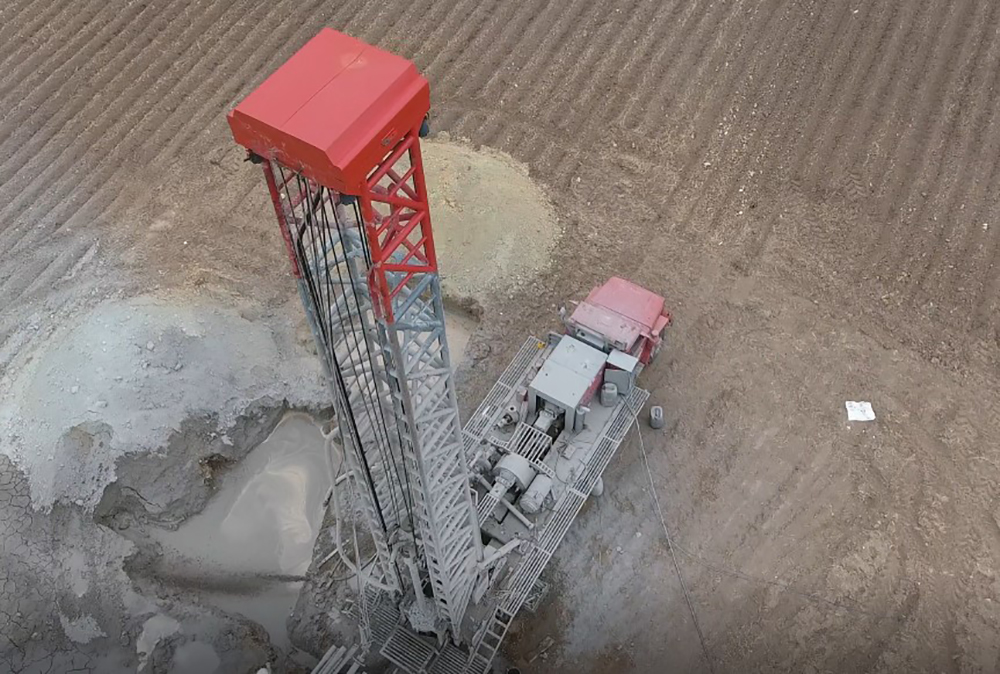“It takes real skill to derail an industry where Canada has so many competitive advantages,” writes Rick Rule regarding energy markets. The chief executive of Sprott US Holdings, a natural-resource brokerage, says the barrier is politics, while Canadian firms, technology, and geology are top tier.
Fortunately, policy can change, and Canada can lead clean-energy production.
As carbon taxes have increased living costs for Canadians, environmental activists have kept billions worth of natural gas underground in struggling provinces. Obstructionists have blocked hydraulic fracturing (fracking), a safe technology with decades of history.
Natural gas is as reliable as traditional electricity sources such as coal but with lower carbon-dioxide emissions. Further, unlike wind and solar, natural gas does not require subsidies. Risks of water contamination and gas leakages, hyped by sensationalist press, are manageable with today’s best practices.
The United States has fracking to thank for her transformation from a net importer of natural gas to one of the world’s top exporters. Fracking has enabled the United States to moderate carbon emissions without penalizing taxpayers or forcing low-income families to reduce their standard of living.
If shale gas is efficient, reliable, and clean versus alternatives, why is there such stubborn opposition? Peter Hartley, co-director of the energy-economics program at Rice University, suspects a knee-jerk reaction towards any carbon-based energy. The flawed assumption is that by association natural gas must be harmful, when the opposite is the case.
“Natural gas is the cleanest-burning fossil fuel … [and] natural gas is very useful and efficient as a way of generating electricity … good for always ensuring the system is balanced… Wind and solar, both of them can fluctuate a huge amount … so you need some backup… In many cases, [natural gas] is the only reason we can even include wind and solar on the system.”
Opportunity for Canada to Thrive
Shale gas’s potential is nothing short of revolutionary, while heavy reliance on one type of fuel exposes an economy to volatility. Natural gas is helping the United States diversify energy sources and be more resilient in the face of supply shocks, all while lowering emissions. In 2013, the US energy sector achieved 1994 levels of emissions, and it is on track to be at 2005 levels by 2060.
Canada is already the fourth-largest producer and the fifth-largest exporter of natural gas globally. Her domestic market is highly integrated with the US market, and Canada can sustain her current production levels for 300 years. However, regulatory uncertainty for new projects is crippling the potential and driving investors south.
At present, 98 per cent of the country’s natural-gas production comes from western provinces, with Alberta and British Columbia leading the way. That means eastern provinces such as Nova Scotia and Quebec have room to grow if they improve their regulatory frameworks. Global demand for natural gas will increase over the coming years as the world reduces reliance on coal.
Provinces Reaping the Benefits
In Canada, fracking to extract oil and gas is present in British Columbia, Alberta, Saskatchewan, and Manitoba. While these provinces have been reaping the benefits of the shale boom, others have fallen behind and even banned fracking projects.
Oil-sands investments contributed to Alberta’s 5.5 per cent annual economic growth between 2010 and 2014, doubling the national average. When the oil-price slump and policy uncertainty led to a sharp drop in oil-sands investment, shale picked up some of the slack and began to grow in 2017. Alberta is now the world’s eighth-largest producer of natural gas.
Nova Scotia, on the other hand, is an example of how putting ideology over reason can damage the economy. A few years ago, the then-NDP provincial administration commissioned a group of experts to research fracking and assess the pros and cons for the province.
Even after the report found oil and gas investments could add $1 billion annually to the Nova Scotian economy and create 1,500 jobs, the provincial government banned fracking. For a province with an unemployment rate of 6.5 per cent, higher than the national average, authorities should think twice. The prohibition perpetuates Nova Scotia’s humiliating and divisive dependency on other provinces, as the federal government hands over around $3 billion per year in transfers and equalization payments.
The latest battleground is New Brunswick, where the provincial government relaxed restrictions on unconventional drilling in June—only to find staunch opposition from environmentalists and a few indigenous tribes. A $70 million fracking project remains up in the air.
Meanwhile, Nova Scotia and New Brunswick must import from the United States natural gas they could have produced themselves.
Obtuse environmental policies are not only ineffective; they are unstable and increase costs for consumers and taxpayers. Eventually, such policies fall out of favour with voters and end up being significantly reformed or discarded. That has happened with the carbon taxes in Australia and Alberta. We need reasonable debate—not the prevailing dogmatism—regarding policies that achieve prudent economic development.
Shale-gas investments across Canada would turn her into an international leader in the transition towards clean energy. Holdout provinces need only reverse their economic self-harm.



